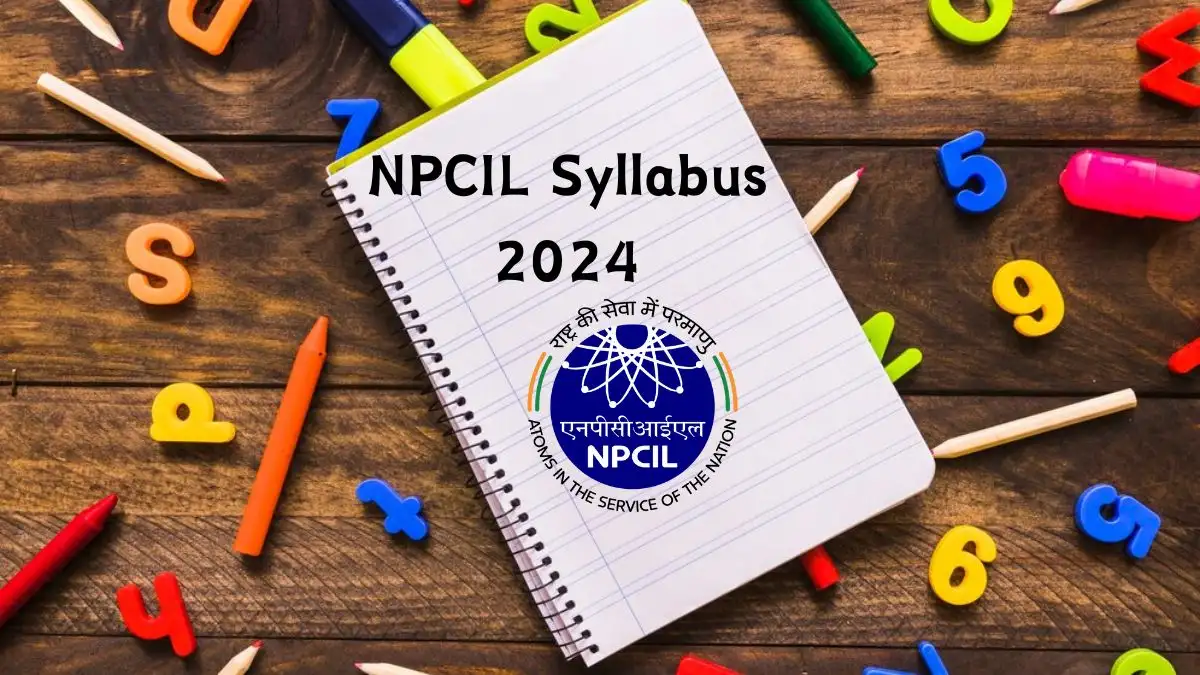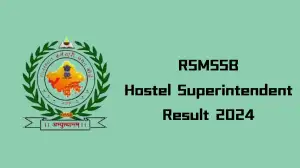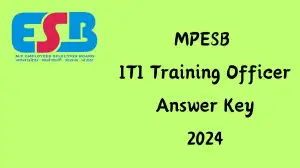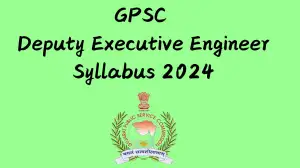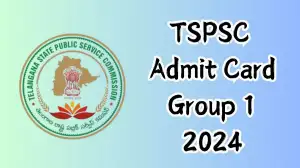NPCIL Syllabus 2024 Overview
The Nuclear Power Corporation of India Limited (NPCIL) will conduct an Online Written Examination for various posts such as Nurse, Stipendiary Trainee/ Scientific Assistant, Pharmacist, Operation Theatre Assistant (Technician-B), Stipendiary Trainee/ Technician, Assistant Grade, and Steno Grade. The detailed syllabus and exam pattern for each post is outlined below.
Article continues below advertisement
NPCIL Exam Pattern 2024
1. Nurse, Operation Theatre Assistant, Pharmacist
- Exam Structure: 50 Multiple Choice Questions (MCQs)
- Duration: 1 Hour
- Scoring: 3 marks for each correct answer, 1 mark deducted for each incorrect answer
2. Stipendiary Trainee/ Scientific Assistant
- Exam Structure: 80 MCQs divided into two parts
- Duration: 1 Hour
- Scoring: 3 marks for each correct answer, 1 mark deducted for each incorrect answer
3. Stipendiary Trainee/ Technician
- Exam Structure: 50 MCQs
- Duration: 1 Hour
- Scoring: 3 marks for each correct answer, 1 mark deducted for each incorrect answer
4. Assistant, Steno
- Exam Structure: 50 MCQs
- Duration: 1 Hour
- Scoring: 3 marks for each correct answer, 1 mark deducted for each incorrect answer
Article continues below advertisement
NPCIL Syllabus 2024
The syllabus is divided into different sections for various posts. Candidates should focus on high-weightage topics first for better scores.
Computer Knowledge
- MS Office: Word, Excel, PowerPoint, Access, Project, Publisher, Visio, Outlook
- Introduction to Computer Science
- Boolean Algebra
- Computer Networks
- Database Management System
- Data Structures
- Emerging Technologies and Web Publishing
- Internet
- Workplace Productivity Tools
English
- Reading Comprehension
- Jumbled Sentences
- Phrase Replacement
- One Word Substitution
- Error Spotting
- Sentence Improvement
- Cloze Test
- Fill in the Blanks
- Wrongly Spelt Words
- Active and Passive Voice
- Direct and Indirect Speech
Article continues below advertisement
Mathematics
- Relations and Functions
- Logarithms
- Complex Numbers
- Quadratic Equations
- Sequences and Series
- Trigonometry
- Cartesian Coordinates
- Statistics
- Differentiation
- Three-Dimensional Geometry
- Straight Lines
- Circles
- Conic Sections
- Permutations and Combinations
- Vectors
- Exponential and Logarithmic Series
- Set Theory
- Probability
- Limits and Continuity
- Applications of Derivatives
- Indefinite and Definite Integrals
- Binomial Theorem
- Matrices
- Determinants
Science
- Physical World and Measurement
- Organic Chemistry
- Atomic Nucleus / Solid and Semiconductor Devices
- Optics
- Electromagnetic Waves
- Mechanics of Solids and Fluids
- Food
- Electromagnetic Induction and Alternating Current
- Metals and Non-Metals
- Laws of Motion
- Computer Science
- Physiology and Human Diseases
- Kinematics and Current Events
- Electrostatics
- Magnetic Effects of Current and Magnetism
- Work, Energy, and Power
- Principles of Communication
- Nutrition and Health
- Dual Nature of Matter and Radiation
- Heat Thermodynamics
General Awareness/ General Knowledge/ Current Affairs
- Directions
- Arithmetical Reasoning
- Judgment
- Problem-Solving
- Number Series
- Syllogistic Reasoning
- Decision Making
- Visual Memory
- Analogies
- Non-Verbal Series
- Mirror Images
- Cubes and Dice
- Coding-Decoding
- Alphabet Series
- Clocks & Calendars
Article continues below advertisement
Quantitative Aptitude
- Simplification
- Pie Chart
- Geometry
- Fundamental Arithmetical Operations
- Algebra
- Data Interpretation
- Number System
- Profit & Loss
- Problems on Ages
- HCF & LCM
- Simple & Compound Interest
- Bar Graph
- Time & Speed
- Pictorial Graphs
- Average
- Percentages
- Time & Work
- Statistical Charts
- Mensuration
- Trigonometry
- Area
- Investment
Respective Discipline
Computer Science Engineering
- C++
- Operating Systems (DOS)
- PHP
- MS SQL Server
- Oracle PL/SQL Architecture
- ASP.NET
- ADO.NET
- Java & JavaScript
- Manageable switch/router & wireless LAN with network security
- Firewall & antivirus
- UML
- Object-Oriented Designing
- Proposing and creating architecture and re-usable libraries in .NET
- JavaScript
- Networking with LAN/WAN
- Novel
- Window OS client & server & Linux OS client & server
- Web Services
- Window Services
- JSON
- Grid Computing, Distributed OS
- Image processing, Digital signal processing
- Image processing
- VLSI
- Embedded System
Article continues below advertisement
Mechanical Engineering
- Refrigeration and Air-Conditioning
- Engineering Materials
- Metal Casting
- Turbomachinery
- Operations
- Thermodynamics
- Numerical Methods
- Strength of Materials
- Operations Research
- Tool Engineering
- Vector Calculus
- Design of Machine Elements
- Calculus
- Joining Processes
- Forming Processes
- Fluid Mechanics
- Probability & Statistics
- Engineering Mechanics
- Differential Equations
- Theory of Machines
Electrical Engineering
Article continues below advertisement
- Network Analysis
- Analog and Digital Electronics
- Electromagnetic Theory
- Instrumentation
- Electronics Devices
- Machines
- Control Systems
- Power Systems
- Power System Protection
- Switchgear and Protection
- Power System Analysis & Control
- Utilization of Energy
- Power Electronics & Drives
Electronics Engineering
- Analog Communications
- Power Electronics & Drives
- Digital Communications
- Advanced Communications
- Circuit Theory/ Digital Electronics
- Analog Electronics
- Basic Electronics/ Power Electronics
- Computer Hardware
- Measurement & Instrumentation
- Microprocessors & Microcontrollers
- Industrial Electronics
Article continues below advertisement
Civil Engineering
- Building Design and Drawing
- Building Technology
- Construction Management and Quantity Surveying
- Economics and Management
- Environmental Engineering
- Environmental Studies in Civil Engineering
- Functional Design of Buildings
- Geomatics
- Geosciences
- Geotechnology
- Mechanics of Fluids
- Mechanics of Solids
- Open Channel Hydraulics and Hydrology
- Structural Analysis
- Structural Design
- Surveying
- Transportation Engineering
- Water Resources Engineering
Instrumentation
Article continues below advertisement
- Basics of Circuits and Measurement Systems
- Analog Electronics
- Digital Electronics
- Signals, Systems, and Communications
- Electrical and Electronic Measurements
- Control Systems and Process Control
- Analytical, Optical, and Biomedical Instrumentation
Industrial Safety
- Safety, Health & Environmental Management
- Safety Engineering
- Safety Legislation
- Occupational Health & Industrial Hygiene
- Risk Management & Permit to Work System
- Controlling Environment Pollution
Article continues below advertisement
Physics
- Electromagnetic Induction and Alternating Current
- Atomic Nucleus/ Solid and Semiconductor Devices
- Kinematics
- Organic Chemistry
- Metals and Non-Metals
- Dual Nature of Matter and Radiations
- Physical World and Measurement
- Optics
- Nutrition and Health
- Electromagnetic Waves
- Principles of Communication
- Heat Thermodynamics
- Motion of System of Particles & Rigid Body
- Laws of Motion
- Magnetic Effect of Current and Magnetism
- Mechanics of Solids and Fluids
- Electrostatics
- Physiology and Human Diseases
- Work, Energy, and Power
Chemical Engineering
Article continues below advertisement
- Physical Chemistry
- Inorganic Chemistry
- Organic Chemistry
- Atomic Structure
- Chemical Bonding
- States of Matter & Ionic Equilibrium
- Thermodynamics & its Applications
- Oxygen Containing Functional Groups
- Electrochemistry
- Organic Molecules
Disclaimer: The above information is for general informational purposes only. All information on the Site is provided in good faith, however we make no representation or warranty of any kind, express or implied, regarding the accuracy, adequacy, validity, reliability, availability or completeness of any information on the Site.
